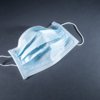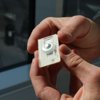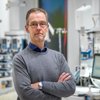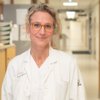Fritextsökning
Artiklar per år
Innehållstyper
-

Rickard Sandberg on this year’s Nobel Prize in Medicine: ”A key discovery”
The discovery that paved the way for the development of todays mRNA vaccines is the basis for this year’s Nobel Prize in Physiology or Medicine.
-

The first drugs to slow down Alzheimer’s – but what does it mean for patients?
New treatments for early Alzheimer’s are bringing hope to thousands of patients and their families. The question is, who will get the treatment, how will the right patients be found in time, and will the healthcare system’s resources be sufficient? Life Science Sweden has spoken to Swedish researchers in Alzheimer’s who voice cautious hope but also see further challenges.
-

Marie Gårdmark: ”The situation is not satisfactory”
”The legislative tool-box is limited, but carrots in the form of longer exclusivity has already proven successful, this has for example increased registration of new products in rare diseases. But will it also work to increase access for all EU patients
-

Oncopeptides avbryter ansökan om utökad indikation för Pepaxti
Forskningsbolaget Oncopeptides avbryter ansökningsprocessen i EU som skulle ge blodcancerläkemedlet Pepaxti tillgång även till tidigare behandlingslinjer för patienter med multipelt myelom.
-

Charlotta Gummeson leaves Sahlgrenska Science Park – “It feels sad and exciting at the same time”
With mixed emotions, Charlotta Gummeson will leave her position as CEO of Sahlgrenska Science Park in October. “It feels sad and exciting at the same time. I’ve been in the thick of things and part of the development for so long now, but I’m also looking forward and thinking about all the new things that there will be in a freer role,” she says to Life Science Sweden
-

Astra Zeneca’s Sweden CEO: “We have great faith in our portfolio”
It all started with a summer job as an operator at Astra’s chemical factory in Snäckviken, just outside Södertälje. More than three decades and countless different assignments later, Per Alfredsson, born and raised in Södertälje, is CEO of Astra Zeneca Sweden, which employs 7800 people in Södertälje, Stockholm and Gothenburg. “It was a very special feeling to be in charge of the entire organisation,” he says in an interview about his career and potential future blockbusters.
-

Pfizer’s Paxlovid is being tested against post-COVID in a major Swedish study
In a new study conducted at the Karolinska University Hospital, Pfizer’s COVID drug, Paxlovid, is now being tested in patients with post-COVID. The study is one of the most extensive studies in the world currently being conducted for a drug for post-COVID.
-

19 medicines in Sweden are under investigation in a major EMA inquiry
19 medicines marketed in Sweden are affected by an ongoing extensive European investigation into suspected fraud at an Indian contract research organisation. Among them are medicines for HIV, epilepsy, cancer and Parkinson’s, which may be withdrawn unless new evidence can be provided that they are up to standard.
-

From the sea of Åland to a self-test for lithium
Four years ago, a meeting on the sea of Åland resulted in the development of a self-test for lithium levels in the blood. The hopes are that the test will be available for individuals with bipolar disorder in the future.
-

Lundabolag beviljas särläkemedelsstatus i USA
Bioteknikbolaget Cantargias läkemedel CAN10 för behandling av systemisk skleros har nu beviljats status som särläkemedel i USA.
-

Samuel Lagercrantz: A special kind of hellishness afflicts post-COVID patients
In addition to the disease itself those suffering from post-COVID have to deal with people who try to label them as hypochondriacs, writes Samuel Lagercrantz in an editorial.
-

Heidi Stensmyren is eager for new challenges in the biotech industry
Heidi Stensmyren has served as President of the Swedish Medical Association, held a managerial position at Karolinska University Hospital and is now Medical Director at a biotech company. “I’m curious and like to have influence, so I’ve often chosen management roles,” she says.
-

Here are the pharmaceutical companies best prepared for AI
How well prepared are pharmaceutical companies in the field of artificial intelligence? That is what a new analysis has tried to evaluate.
-

Life Science Sweden heads to the Oresund region! ‒ Hello there Michael Linnell
Life Science Sweden’s The Future of Swedish Danish Life Science and New Updates in Drug Formulation & Bioavailability meetings are coming up soon. We asked Michael Linnell, project manager for Life Science Sweden’s event portfolio, a few short questions.
-

“Unfortunately, we are not strong when it comes to conducting clinical trials”
The number of company-initiated clinical trials conducted in Sweden has been declining in recent years. In mid-March, a government inquiry was presented that aimed to find answers and solutions to this downward trend. One of the proposals was a stable, sustainable and funded model for collaboration.
-

Ascelia halverar arbetsstyrkan – ”Tyvärr är dessa steg nödvändiga”
Bioteknikbolaget Ascelia Pharma säger upp tolv personer - nästan halva arbetsstyrkan - för att minska kostnaderna sedan delar av en studie måste göras om. ”Detta är ett mycket svårt beslut för oss att ta”, säger vd:n Magnus Corfitzen.
-

Small robots to deliver pharmaceuticals to the body
Robots that can operate inside the body and a platform that combines ultrasound with AI. These are a couple of the technologies that have qualified for a list that aims to promote sustainable entrepreneurship.
-

Double up for Korbinian Löbmann
This year, Korbinian Löbmann will moderate the New Updates in Drug Formulation & Bioavailability meeting in Copenhagen for the fifth time. Furthermore, he will also moderate The Future of Swedish & Danish Life Science congress in Lund for the first time.
-

CROs in drug development: "We use our expertise to speed up the process
Consultancy firms have become an increasingly important part of drug development. “It’s a trend and a business model that works, and we see no indication that it will change,” says Helena Lüning of the industry organisation ASCRO.
-

Avvikelser vid MR-bedömning försenar nytt kontrastmedel: ”Mycket olyckligt och överraskande”
En ny utläsning krävs av bilderna från fas III-studien med kontrastmedlet Orviglance. Orsaken är en oacceptabelt hög variation i de anlitade radiologernas bedömningar, uppger Ascelia Pharma.
-

Why the world renown researcher Marc Tessier-Lavigne resigns as Stanford´s president
In mid-summer, neuroscientist Marc Tessier-Lavigne announced his resignation as President of Stanford following allegations of manipulated study data. According to the reporter Theo Baker, who first reported the story, Tessier-Lavigne “rewarded the winners and punished the losers”. Here is the background of the story which has shaken the American scientific community over the summer.
-

Uppsala-based company wins important patent dispute – but the decision is subject to appeal
A US district court has ruled in favour of Orexo in a dispute over the patent protecting the Swedish company’s drug Zubsolv, developed for treating patients with opioid addiction. However, the opposing party, the Indian company Sun, is not giving up and has filed an appeal.
-

AI-stödd mammografi hittade fler cancerfall i studie
Screening med hjälp av AI hittade fler bröstcancerfall och minskade arbetsbördan kraftigt jämfört med sedvanlig röntgengranskning av två radiologer i en studie från Lunds universitet.
-

Nytt centrum för avancerade terapiläkemedel vid Lunds universitet
Lunds universitet inrättar nu ett utvecklingscentrum för avancerade terapier (ATMP). Centrumet får namnet LU-ATMP och skapas i syfte att omvandla medicinsk forskning till terapier för patienter.